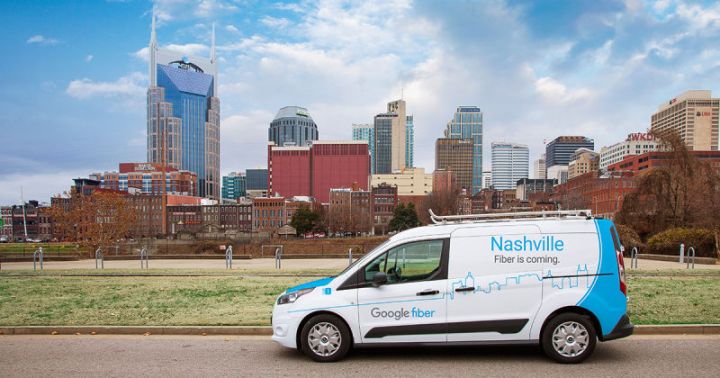
At issue are utility poles and who gets to move wires around to make room for new wires. Google Fiber has been complaining that AT&T and Comcast have been slow to allow access to utility poles those two companies own in the city — access the Google Fiber needs to deliver gigabit fiber optic internet service to customers who want it.
Google Fiber say it can’t get access to 44,000 utility poles in Nashville and is hampered by the current “make ready” regulation. Under “make ready,” each utility company that has wires on a pole has to move its own wires before a newcomer can attach new wires. One factor neighborhoods likely don’t appreciate is that rather than have one truck show up and do it all, multiple trucks from multiple companies are required.
The vote on Tuesday is for a “one touch make ready” regulation which if passed would allow Google Fiber, for example, to move all the wires necessary and attach its own wires in one visit. That probably sounds great to Google Fiber, but for the other companies, not so much. AT&T has already said it stands ready to file a lawsuit if the ordinance is passed — it has already sued Louisville, Kentucky over that city’s “one touch make ready” ordinance.
Google published a chart that stated that in all, there are 88,000 poles in Nashville that need a “fiber attachment.” Of those, 44,000 need “make ready” work. It claims 9,793 have been approved for “make ready” work (meaning other companies would do their part), but only a total of 33 poles have been fixed, or “made ready.”
Ars Technica stated that most of the poles are owned by Nashville Electric Service and AT&T is the second biggest owner. According to Google, of the 9,793 poles that have been approved, 4,374 need Comcast to move wires and 3,595 require AT&T’s work.
So AT&T, which hasn’t been holding back in its portrayal of Google Fiber, stated that it has completed work on 459 poles. The company also said it had received 3,809 applications for make ready work from Google Fiber but nearly half don’t need any work from AT&T. Of course, other companies could still need to pay “make ready” visits. AT&T previously had said the many of Google Fiber’s “make ready” orders had incorrect engineering details that could in some cases violate safety standards.
“This is another example of Google attempting to mislead the public and curry favor for government intervention,” AT&T said. “The reality is that as of yesterday, AT&T has completed Make Ready work on 459 poles for Google Fiber, and AT&T is meeting or exceeding the timetables outlined in the contract Google signed with AT&T. We have plenty of capacity to handle the workload and are doing so in an expeditious manner.”
Comcast weighed in as well, “We have a solid record of working collaboratively on pole attachment issues with Google Fiber in Atlanta and with other competitors in many other jurisdictions, and we believe we can achieve similar results in Nashville. We believe that we should quickly come together with all providers collaboratively to work on a solution. Instead of the Council adopting One Touch, pole owners and attachers should agree upon standards and processes to collectively address issues.”
Editors' Recommendations
- Miss unlimited Google Photos storage? T-Mobile has a deal for you
- T-Mobile partners to promote Google apps for messaging, cloud storage, and TV
- Google Pixel 3a XL vs. OnePlus 6T: The contest for midrange mastery




